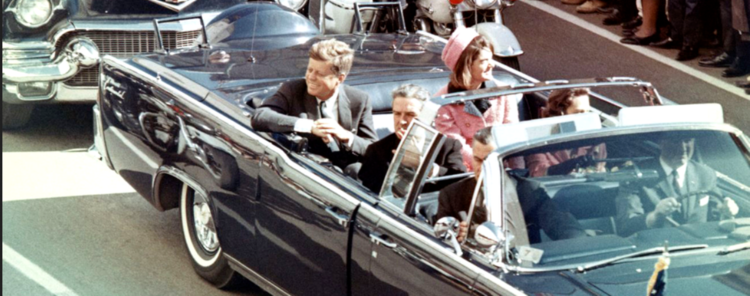
11/21/2013
As I wrote last year in Taki’s Magazine:
One counterintuitive reason for the tumult of the mid-to-late 60s [that followed JFK’s assassination] was the evaporation of the long-simmering Protestant-Catholic divide which had provided a stable multigenerational anchor for social tensions.
The instant enshrinement of the martyred Catholic president in the pantheon of American heroes did much to mollify Catholic resentments over being considered fringe Americans. (Back then, being thought a normal American was praise, not denigration.) Meanwhile, the enthusiastic adoption by Catholic women of oral contraceptives (which the FDA approved in 1960) reassured Protestants that they weren’t going to lose the War of the Cradle to the Vatican.
In turn, this closure of the biggest fissure in the white majority opened a space for the Generation Gap. People need divisions around which to organize themselves, and in that mostly racially and ethnically homogeneous era, age differences briefly became central. (In more diverse cultures, such as 21st-century America, people cleave more to their kin.)
Of course, one racial gap was crucial to the story of the 60s. The assassination of the domestically cautious JFK put the ambitious LBJ into power with a mandate to push through civil rights and welfare programs to punish the right-wing racists who had murdered Kennedy. Chief Justice Earl Warren expressed the hopes and dreams of the Establishment when he declaimed on 11/22/63, “A great and good President has suffered martyrdom as a result of the hatred and bitterness that has [sic] been injected into the life of our nation by bigots….”
It turned out that JFK had been murdered by a communist who had defected to the Soviet Union. When Jackie Kennedy learned the unwelcome truth, she lamented, “He didn’t even have the satisfaction of being killed for civil rights. It had to be some silly little communist. It robs his death of any meaning.”
But that wasn’t a popular realization, so everybody who was anybody mostly ignored Lee Harvey Oswald and went on acting as if it had been Strom Thurmond up in the Texas Book Depository with the mail-order rifle.
President Johnson announced his Great Society in May 1964 and signed the Civil Rights Act in July. The era’s first black riot followed a couple of weeks later. LBJ won by a landslide in November, and vast riots ensued in Watts in 1965 and Detroit in 1967.
This is a content archive of VDARE.com, which Letitia James forced off of the Internet using lawfare.